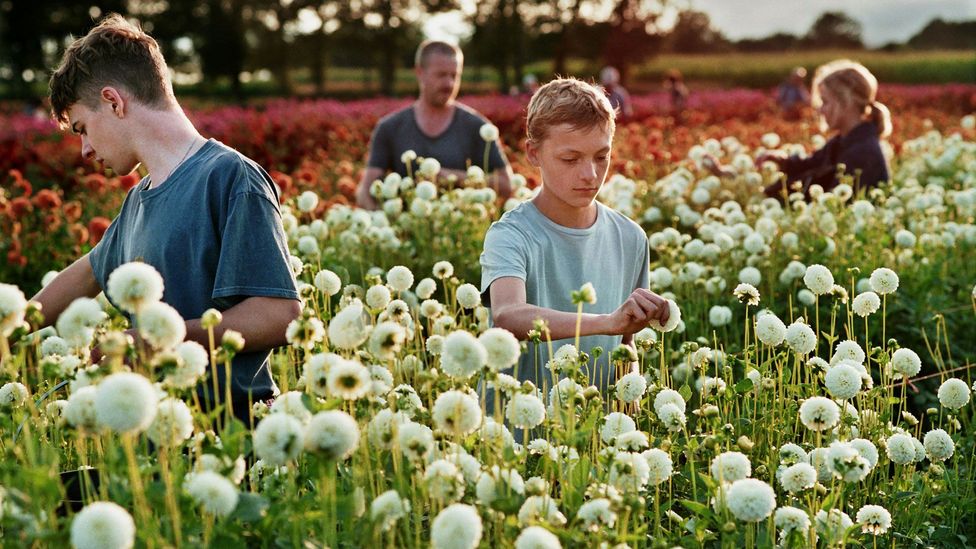
(spoiler free)
Friendship can be tough, but for the inseparable Rémi (Gustav de Waele) and Léo (Eden Dambrine) it seems like the most effortless thing in the world. After spending an idyllic summer in each other’s unceasing company, the boys must embark on the next stage of their education as they start high school together. And using this often formative phase of adolescence, director Lukas Dhont explores the pain of separation in his sophomore feature, Close.
And there certainly is much pain to be found in this film, but Dhont begins by painting one of the most pure portraits of adolescent love ever to be seen on screen. He captures the titular closeness of Rémi and Léo in a truly beautiful way, gently inviting audiences to share in the bliss and innocence of their relationship. He conveys this by way of a collection of unhurried sequences where the boys simply spend time with each other: laughing, playing and sleeping. There’s no need for plot as his presentation of their intimate bond alone proves effective to no end. Some will be hesitant to label their friendship as anything more than that, but it’s clear that the love these two boys share for each other is more intense than that of friends, even if they don’t themselves realise, which in itself is half the beauty of it.
Although, Dhont’s thoughtful direction and truthful writing aren’t enough on their own to ensure the eventual success of Close. Instead, it’s thanks to the combination of these elements with Dhont’s cast, predominately young stars Gustav de Waele and Eden Dambrine. Both of whom are nothing short of superb. They are in such command of their performances and their chemistry is beyond endearing. Frank van den Eeden’s wonderful cinematography often lingers on their faces throughout shots, and both actors are able to carry the intricate poignancy of entire scenes with a single look. The supporting cast, who mainly portray the boys’ respective families are similarly impressive, with Émilie Dequenne in particular delivering an emotionally complex turn as Rémi’s mother.
The way the cast as a whole are able to convey the depth of emotion within Dhont and writing partner Angelo Tijssens’ screenplay so remarkably is quite something to behold. The screenplay has two distinct sections with a cruel shift in tone dividing them, yet what both have in common is an overwhelming sense of feeling. Close devotes itself to everything adolescent friendships encompass and so much more, first communicating unadulterated joy, followed then by utter devastation. The change in dynamic is massive for the boys, and this is truly felt by the audience too, made possible by the outstanding and ongoing work done by all in the film’s first act. What comes next is a deeply-affecting meditation on pain, guilt and healing, and Close continues to be as powerful as what has led it up to this point.
Some may dispute the direction that the film takes, but it’s an undeniably honest reflection of real world experience. Nonetheless, even if the film only existed as its plot-free first act it would be completely worthwhile. Dhont’s gorgeous depiction of such wholesome and genuine adolescent love is a rarity that deserves to be cherished. As do the astounding performances of de Waele and Dambrine, whose stunning collaboration is about as close to cinematic perfection as its come.
Written by Hamish Calvert
★★★★★
Thanks for reading this review, if you enjoyed it and would like to support us you can buy us a coffee HERE and make sure to follow us @HCMovieReviews over on Twitter.
Thanks to Queen’s Film Theatre for screening access
Leave a comment